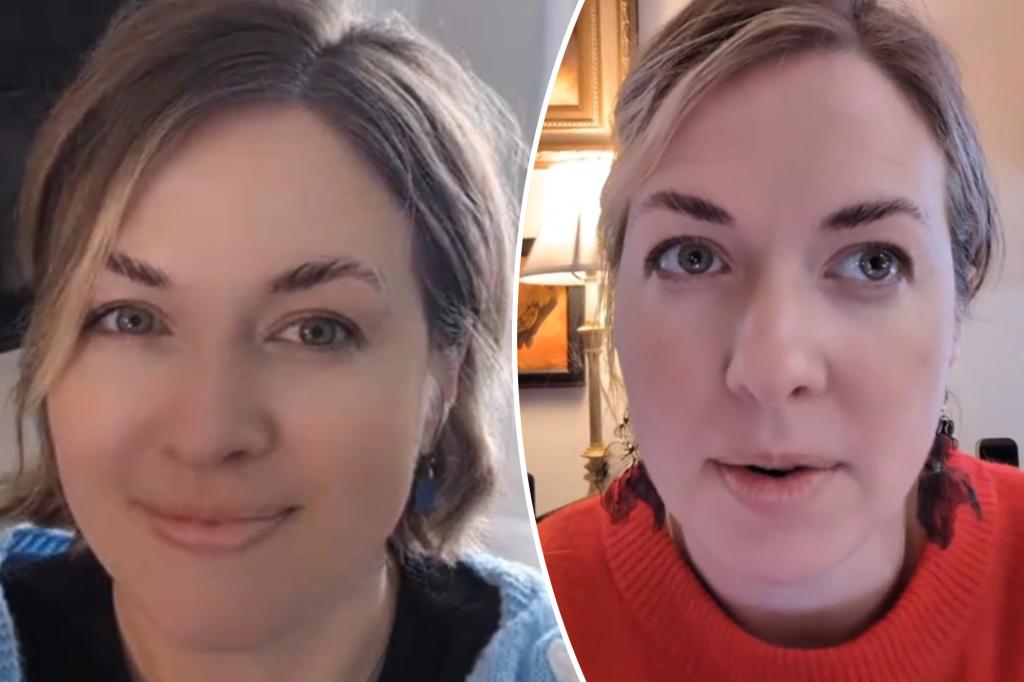The TikTok video, now deleted, opened a window into a marriage marred from the very beginning. The bride, using the handle @noiwontthanks, recounted the chilling moment just 60 seconds after saying “I do” when her husband uttered two words that would forever haunt her: “or smaller.” This seemingly innocuous comment, made in response to her lighthearted joke about fitting into her wedding dress in ten years, became a chilling foreshadowing of the decade of emotional turmoil that lay ahead. What should have been a moment of shared joy and anticipation for the future transformed into a stark realization for the bride – a gut-wrenching intuition that something was profoundly wrong. The judge’s stunned reaction, admonishing the groom with, “Son, you just got married,” validated her fears, confirming that her perception wasn’t misplaced. This seemingly insignificant exchange became the first crack in the foundation of their marriage, a fissure that would ultimately widen over the next ten years, leading to their divorce.
The bride’s decision to elope to a courthouse, a choice driven by her desire for a low-key ceremony, inadvertently created the perfect backdrop for this pivotal moment. The absence of the usual celebratory distractions sharpened the focus on her husband’s callous remark, leaving her exposed and vulnerable in the immediate aftermath of their vows. Her hope for a simple, intimate ceremony was shattered by her new husband’s immediate focus on her physical appearance, setting the tone for a relationship defined by emotional manipulation and control. The stark contrast between the joyous occasion and the groom’s cutting words amplified the impact, etching the moment into her memory. The simplicity of the setting, meant to symbolize a fresh start, instead became a stage for the unveiling of his true nature.
The incident resonated deeply with many online, particularly women who had experienced similar unsettling realizations early in their marriages. The bride’s story tapped into a shared experience of recognizing red flags, often subtle and easily dismissed, that later blossom into significant relationship problems. The “or smaller” comment became a symbol of a larger issue: the insidious nature of emotional abuse, often masked by seemingly harmless words or actions. The seemingly innocuous remark became a potent example of how early warning signs can be easily overlooked or rationalized, particularly in the heady rush of new love. Her story became a cautionary tale, highlighting the importance of trusting one’s instincts and recognizing the subtle signs of emotional manipulation.
The bride’s story wasn’t merely about a single hurtful comment; it was about the pattern of emotional abuse that followed. She described experiencing “psychological abuse,” “gaslighting,” and “love bombing” – manipulative tactics designed to control and undermine her sense of self. The “or smaller” comment, seemingly trivial on its surface, became a microcosm of the larger dynamic of their relationship. It revealed her husband’s preoccupation with controlling her appearance and, more broadly, controlling her. This initial seed of disrespect blossomed into a decade of emotional manipulation, leaving her constantly questioning her own sanity and perceptions.
The judge’s surprised reaction served as an external validation of the bride’s internal alarm. His words, “Son, you just got married,” became a poignant reminder of the sacredness of the commitment the groom had just made, a commitment he seemingly disregarded moments later. The judge’s response, however brief, offered the bride a flicker of reassurance that her reaction was justified. In a moment of profound vulnerability, the judge’s words became a lifeline, affirming that her feelings were valid and that the groom’s behavior was inappropriate. This external validation was crucial in helping her begin to trust her own intuition, a crucial step in eventually extricating herself from the abusive relationship.
Ultimately, the bride’s story serves as a powerful reminder of the importance of recognizing red flags in relationships, no matter how small they may seem. Her experience highlights the insidious nature of emotional abuse, which often begins subtly and escalates over time. The seemingly insignificant comment about her dress size became a harbinger of the emotional manipulation and control that would define their marriage. By sharing her story, she empowered others to trust their instincts and recognize the subtle signs of emotional abuse, offering hope and validation to those who have experienced similar situations. The viral nature of her video underscores the universality of this experience, offering solace and a sense of shared understanding to countless individuals navigating the complexities of relationships.


